Just In
- 1 hr ago

- 3 hrs ago

- 4 hrs ago

- 4 hrs ago

Don't Miss
- Technology
 Meta Ray-Ban Smart Glass Users Can Now Make Video Calls on WhatsApp
Meta Ray-Ban Smart Glass Users Can Now Make Video Calls on WhatsApp - Movies
 Deadpool & Wolverine Cast Fees: Ryan Reynolds' Salary 150% HIGHER Than Hugh Jackman; Guess MULTI-CRORE Fees
Deadpool & Wolverine Cast Fees: Ryan Reynolds' Salary 150% HIGHER Than Hugh Jackman; Guess MULTI-CRORE Fees - Sports
 DC vs GT My11Circle Prediction IPL 2024 Match 40: DEL vs GUJ Fantasy Tips & Expert Picks
DC vs GT My11Circle Prediction IPL 2024 Match 40: DEL vs GUJ Fantasy Tips & Expert Picks - News
 Tamil Nadu Weather Update: 9 Districts Over 40°C, Salem Boils At 42.3°C; Heatwave Warning Issued
Tamil Nadu Weather Update: 9 Districts Over 40°C, Salem Boils At 42.3°C; Heatwave Warning Issued - Finance
 Rs 55/Share Dividend Announced: Multibagger Refineries PSU Declares 72% Jump In Q4 Profit
Rs 55/Share Dividend Announced: Multibagger Refineries PSU Declares 72% Jump In Q4 Profit - Travel
 Mumbai Opens BMC Headquarters For Exclusive Heritage Tour
Mumbai Opens BMC Headquarters For Exclusive Heritage Tour - Automobiles
 The Rise and Fall of the TVS Jive: India's Pioneering Clutchless Motorcycle
The Rise and Fall of the TVS Jive: India's Pioneering Clutchless Motorcycle - Education
 TS Inter Results 2024 Toppers' List, Check Out the Districts That Top the List
TS Inter Results 2024 Toppers' List, Check Out the Districts That Top the List
Coronavirus: 20 Myths And Facts About COVID-19 You Should Know
As the Novel Coronavirus 2019 aka COVID-19 continues to affect people all over the world, articles and social media posts about the new virus are being shared online to create awareness. Unfortunately, amidst all these information, there is so much inaccurate information doing the rounds on social media which can make it difficult for people to find out what's the truth.

With too many bogus claims and misinformation being flooded about the disease, the World Health Organization (WHO) is calling it an 'infodemic'. WHO defines 'infodemic' as an overabundance of information, some accurate and some not that makes it hard for people to find trustworthy sources and reliable guidance when they need it. Coronavirus Live Updates.
During this time of emergency, rumours and false information can be dangerous. We compiled a list of common myths and facts about coronavirus.

1. Myth: Coronavirus can’t be transmitted in hot and humid weather
Fact: Coronavirus can be transmitted in any type of weather, including hot and humid weather. Regardless of the weather, taking preventive measures will help protect you against coronavirus.


2. Myth: Cold weather can kill the coronavirus
Fact: Cold weather can't kill the new virus. According to the WHO, the normal human body temperature is around 36.5 degree Celsius and 37 degree Celsius, regardless of the outside temperature. The best way to protect yourself from coronavirus is to clean your hands with soap and water or an alcohol-based hand sanitizer.
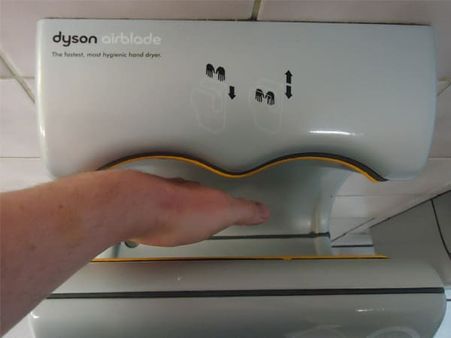
3. Myth: Hand dryers are effective in killing the coronavirus
Fact:No, hand dryers are not effective in killing the new virus.You should frequently clean your hands with soap and water and dry your hands thoroughly with a clean paper towel.
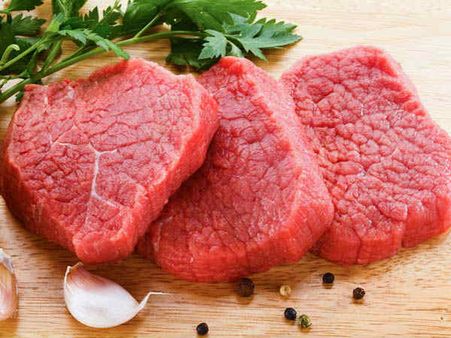
4. Myth: You can get coronavirus if you eat meat or eggs
Fact:
Coronavirus
is
an
infection
that
spreads
from
person
to
person
and
eating
non-vegetarian
foods
such
as
meat,
eggs
or
seafood
has
got
nothing
to
do
with
coronavirus
transmission.
However,
as
a
precautionary
measure,
all
kinds
of
meat
should
be
washed
and
cooked
properly
before
consumption.
PETA
India
advises,
"To
protect
yourself,
such
as
when
visiting
live
animal
markets,
avoid
direct
contact
with
animals
and
surfaces
in
contact
with
animals.
Ensure
good
food
safety
practices
at
all
times.
Handle
raw
meat,
milk
or
animal
organs
with
care
to
avoid
contamination
of
uncooked
foods
and
avoid
consuming
raw
or
undercooked
animal
products."

5. Myth: Coronavirus is man-made
Fact: No, coronavirus is not man-made. Coronavirus is a zoonotic disease, which means they are transmitted from animals to people. The Centres for Disease Control and Prevention (CDC) states that the coronavirus is linked to a seafood market in Wuhan, China. However, researchers and health experts are still trying to figure out the exact cause of the virus.

6. Myth: People who contract the coronavirus will die
Fact: People who contract coronavirus will usually have mild to moderate symptoms such as cough, sore throat, fever, runny nose and headache that can go away if treated on time. According to a study, in Wuhan, China a total of 1,023 deaths have occurred among 44,672 confirmed cases with a fatality rate of 2.3 per cent. And people who are above 80 years old have the highest case fatality rate at 14.8 per cent [1].

7. Myth: Children can’t contract coronavirus
Fact: People of all age groups can contract the coronavirus, though there have been fewer coronavirus cases of children as compared to adults. According to a study, a total of 745 children in China were screened for COVID-19 till 20 February 2020. Out of 745, 10 children aged between 2 to 15 years tested positive for coronavirus [2].

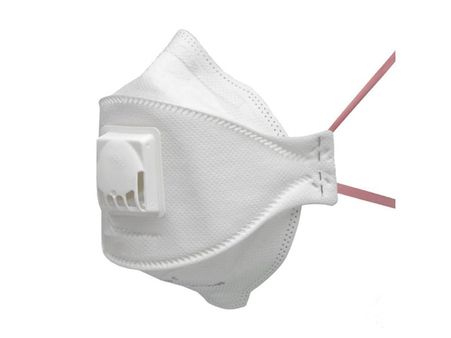
8. Myth: Wearing a face mask will prevent you from coronavirus
Fact:Standard surgical masks can't protect you from COVID-19 because they are not designed to block out viral particles. However, surgical masks can help prevent infected people from spreading the virus by blocking any air droplets caused by coughing or sneezing. Also, wearing lightweight masks will not protect you from the virus because they do not fit tightly to your nose and mouth and may allow air droplets to get into your nose, mouth or eyes.

9. Myth: Alcohol can kill the new virus
Fact:The WHO says that spraying alcohol or chlorine all over your body will not kill the virus that has already entered your body. Doing so can be harmful to your body, especially your nose and mouth.
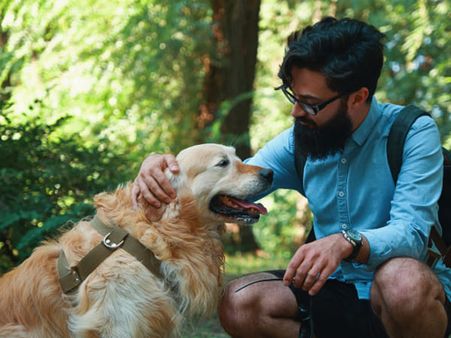
10. Myth: Pets can spread the new coronavirus
Fact: The CDC and the World Organisation for Animal Health have issued advisories that there is no evidence to prove that pets such as cats and dogs can spread the coronavirus. If the owner of the pet is infected with the virus, there are chances that the pet can get it.

11. Myth: Coronavirus is less deadly than the flu
Fact: So far, the coronavirus cases are increasing drastically affecting many people around the world. COVID -19 has 20 times higher mortality rate than the flu depending on the location and individual's age [1].

12. Myth: Home remedies can cure or prevent coronavirus
Fact: Home remedies such as applying sesame oil on the body and eating garlic can't help prevent coronavirus. WHO states that, garlic has some antimicrobial properties, but there is no current evidence to prove that it can protect you from coronavirus.

13. Myth: Coronavirus can spread from products or packages from China
Fact: People who receive products or packages from China are not at risk of contracting the new virus, because the virus doesn't survive on objects like letter or packages.

14. Myth: Vitamin C supplements will prevent you from getting infected
Fact: There is no current evidence to prove that vitamin C supplements can protect you from COVID-19. So, having vitamin C supplements won't help.
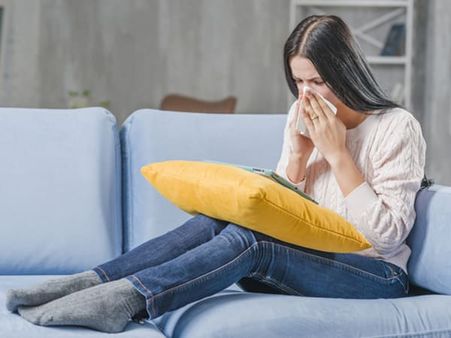
15. Myth: You will notice the symptoms of coronavirus
Fact: The symptoms of coronavirus are similar as that of a common cold or flu, which makes it difficult for a person to notice the symptoms. Also, when a person is infected with the virus, at first it may show no symptoms at all and gradually when the disease progresses, it may cause difficulty in breathing, fever, cough and sore throat.
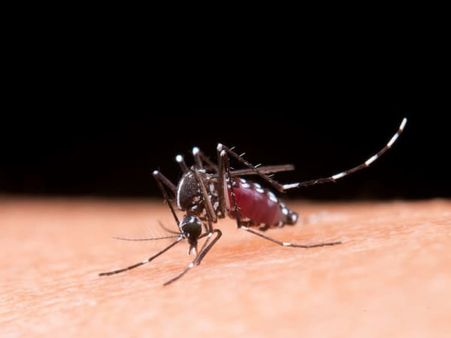
16. Myth: Coronavirus can spread through mosquito bites
Fact: COVID-19 is a respiratory illness that cannot be spread through mosquito bites. The virus is spread through tiny air droplets when an infected person coughs or sneezes.
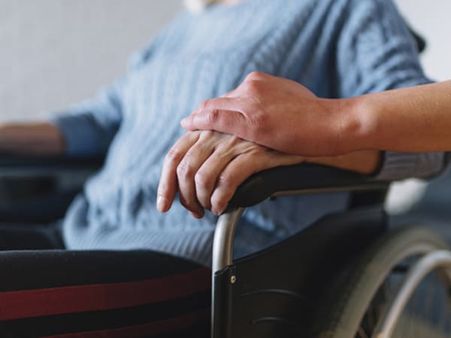
17. Myth: Only older people are susceptible to coronavirus
Fact: People of all age groups can contract the new virus; however, older people and people suffering from medical conditions such as diabetes, heart disease and asthma are more vulnerable to the virus.
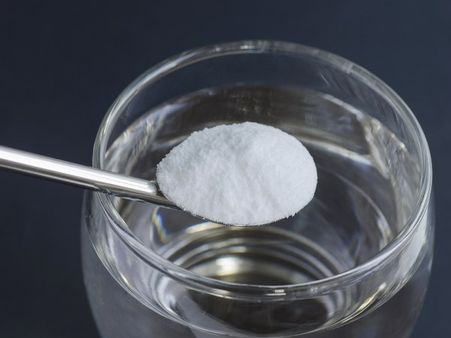
18. Myth: Rinsing your nose with saline will prevent COVID-19
Fact: No, there is not current evidence to prove that rinsing your nose with saline daily will protect you from the new virus.
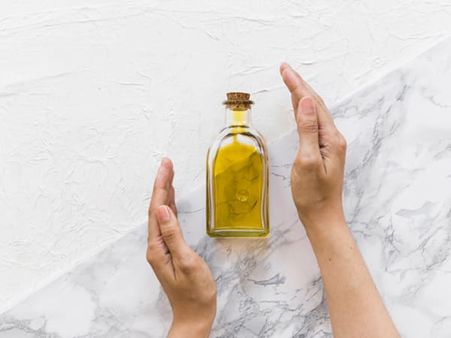
19. Myth: Using essential oils and gargling with salt water will prevent coronavirus
Fact: None of these protects you from COVID-19. The effective ways to protect yourself is by washing hands properly with soap and water and avoiding close contact with people who are sick.

20. Myth: Antibiotics are effective in treating coronavirus
Fact: Antibiotics can protect against bacteria but not viruses. COVID-19 is a virus that cannot be treated with antibiotics. Vaccination is needed to protect you from the virus and scientists are currently working on one.
To Conclude...
Check online reputable, reliable sources such as CDC and WHO for accurate information and don't make any assumptions on your own. Avoid listening to any kind of rumours and only listen to your doctor.
-
 healthCOVID Surge In India: Do You Need A COVID-19 Booster Shot?
healthCOVID Surge In India: Do You Need A COVID-19 Booster Shot? -
 disorders cureCommon COVID Symptoms In Fully Vaccinated Individuals: What You Should Know
disorders cureCommon COVID Symptoms In Fully Vaccinated Individuals: What You Should Know -
 wellnessMild COVID Linked To Life-Threatening Blood Clots, Increased Risk Of Cardiovascular Disease; Study
wellnessMild COVID Linked To Life-Threatening Blood Clots, Increased Risk Of Cardiovascular Disease; Study -
 wellnessCOVID-19 Variants In India: New COVID Variant May Pose Threat To Elderly People
wellnessCOVID-19 Variants In India: New COVID Variant May Pose Threat To Elderly People -
 basicsCovid-19 Linked To Early Onset Of Periods: What You Need To Know
basicsCovid-19 Linked To Early Onset Of Periods: What You Need To Know -
 wellnessCOVID XBB Variants Of Omicron In India: What You Should Know
wellnessCOVID XBB Variants Of Omicron In India: What You Should Know -
 disorders cureNew Omicron Subvariant BQ.1 Detected In Maharashtra: What You Should Know
disorders cureNew Omicron Subvariant BQ.1 Detected In Maharashtra: What You Should Know -
 disorders cureOmicron BF.7 In India, Risk Of Fresh Wave During Diwali: What You Should Know
disorders cureOmicron BF.7 In India, Risk Of Fresh Wave During Diwali: What You Should Know -
 wellnessCoronavirus Residues Might Be Causing Long COVID: New Study
wellnessCoronavirus Residues Might Be Causing Long COVID: New Study -
 wellnessCentury-Old TB Vaccine Could Be Effective Against Covid-19 And Other Infections: New Study
wellnessCentury-Old TB Vaccine Could Be Effective Against Covid-19 And Other Infections: New Study -
 disorders cureCovid-19 Patients At Risk Of Neurological & Psychiatric Conditions Two Years After The Infection: New Study
disorders cureCovid-19 Patients At Risk Of Neurological & Psychiatric Conditions Two Years After The Infection: New Study -
 wellnessCOVID In Smokers: An Expert Explains
wellnessCOVID In Smokers: An Expert Explains


 Click it and Unblock the Notifications
Click it and Unblock the Notifications




